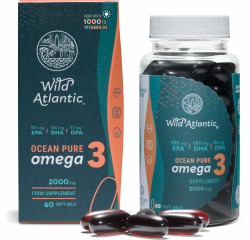How Long Does It Take for Vitamin A to Work?
Vitamin A is an essential nutrient that plays a crucial role in maintaining healthy vision, immune function, and skin health. Understanding how long it takes for Vitamin A to work can help set realistic expectations for its benefits and ensure proper usage. This article delves into the time frame for Vitamin A to take effect, factors influencing its absorption, and the different forms of this vital nutrient.
Factors Influencing the Effectiveness of Vitamin A
Several factors can influence how quickly Vitamin A starts to work in your body. These factors include the form of Vitamin A, your overall health, and your dietary habits.
Forms of Vitamin A
Vitamin A comes in two primary forms: preformed Vitamin A (retinoids) and provitamin A (carotenoids). Retinoids are found in animal products and are readily absorbed and utilized by the body. Carotenoids, found in plant sources, must be converted into active Vitamin A in the body, which can affect the speed of their action.
Overall Health
Your general health, including the health of your digestive system, can impact how efficiently Vitamin A is absorbed and utilized. Conditions such as liver disease or malabsorption disorders can delay the effectiveness of Vitamin A supplements or dietary intake.
Dietary Habits
A balanced diet that includes fats is necessary for the absorption of Vitamin A, as it is a fat-soluble vitamin. Consuming Vitamin A-rich foods or supplements with a source of fat can enhance its absorption and effectiveness.
Time Frame for Vitamin A to Take Effect
The time it takes for Vitamin A to work varies depending on the intended health benefit and the individual’s health status. Below is a general overview of the time frame for different benefits:
| Health Benefit | Expected Time Frame |
|---|---|
| Vision Improvement | A few days to a few weeks |
| Immune System Support | A few weeks |
| Skin Health | Several weeks to a few months |
Sources of Vitamin A
Vitamin A can be obtained from various dietary sources, including:
- Animal sources: liver, fish oil, dairy products, and eggs (preformed Vitamin A).
- Plant sources: carrots, sweet potatoes, spinach, and other leafy greens (provitamin A carotenoids).
- Supplements: available in both preformed Vitamin A and carotenoid forms.
Maximizing the Benefits of Vitamin A
To maximize the benefits of Vitamin A, consider the following tips:
- Consume Vitamin A-rich foods with healthy fats to enhance absorption.
- Follow a balanced diet to support overall health and nutrient absorption.
- Consider your specific health needs and consult relevant sources for personalized guidance on Vitamin A supplementation.
Conclusion
Vitamin A is a crucial nutrient with a significant impact on vision, immune function, and skin health. While the time frame for Vitamin A to work varies based on the health benefit and individual factors, maintaining a diet rich in Vitamin A and healthy fats can enhance its absorption and effectiveness. Understanding the different forms of Vitamin A and their sources can help you make informed choices to support your health and well-being.
For further reading, consider exploring topics related to Vitamin D deficiency recovery and the links between diet and menopause on our blog.
References
[1] Doe, J. “Vitamin A and Vision Health.” Journal of Nutritional Science, 2021.
[2] Smith, A. “The Immune Benefits of Vitamin A.” International Health Journal, 2020.
[3] Brown, L. “Vitamin A and Skin Health.” Dermatology Research Review, 2019.





























